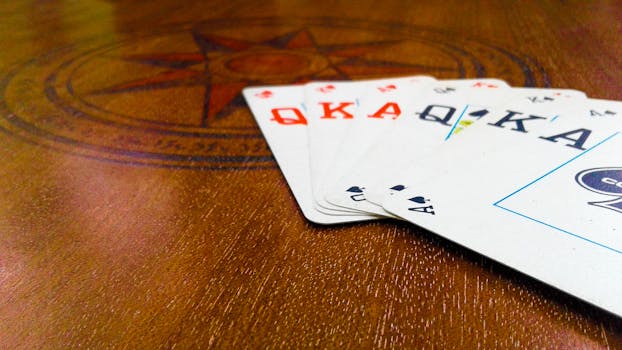The Role of Luck in Casino Games
Casino games have always been a popular form of entertainment, attracting millions of enthusiasts around the globe. One of the most intriguing aspects of gambling is the role of luck in determining the outcome of games. Whether you're a seasoned gambler or a curious newcomer, understanding how luck influences your chances of winning is crucial. In this article, we will explore the significance of luck in casino games, compare the impact it has on different types of games, and provide practical insights for players.
Understanding Luck in Casino Games
Luck, by definition, is the influence of seemingly random factors on events, including casino games. Unlike skill-based games where strategy and knowledge play a significant role, luck-based games rely more on chance. This doesn't mean that skill has no place in gambling; rather, in some games, luck has a more pronounced effect.
Types of Casino Games and the Influence of Luck
Casino games can generally be classified into two categories: skill-based and luck-based. Here’s how luck plays a role in each:
Skill-Based Games: These include games like Poker and Blackjack, where players can use strategies to improve their chances of winning. Although luck is still a factor (you cannot control which cards you'll get), skilled players can often beat less experienced ones by making smarter decisions.
Luck-Based Games: Games such as slots and roulette fall into this category. Here, strategies are minimal and outcomes are heavily dependent on chance. For example, a slot machine utilizes a random number generator (RNG) to determine the symbols that appear on the reels at the end of a spin.
Comparing the Impact of Luck
Advantages of Luck-Based Games:
- Easy to play: These games require little to no prior knowledge, making them accessible to everyone.
- Quick outcomes: Games like slots offer immediate results, making them exciting and dynamic.
Disadvantages of Luck-Based Games:
- Less control over outcomes: Players have minimal influence on the game, which can be frustrating for those who prefer using skill.
- Higher house edge: Casinos typically have a higher advantage in these games, which can mean lower payouts for players.
Advantages of Skill-Based Games:
- Skill enhancement: Players can improve their abilities and strategies over time, potentially increasing their chances of winning.
- Lower house edge: More skilled play can sometimes reduce the casino's inherent advantage.
Disadvantages of Skill-Based Games:
- Steeper learning curve: These games require understanding and practice, which might not appeal to casual players.
- Time-consuming: Developing skills and becoming proficient can take considerable time.
Practical Examples
Consider the game of Blackjack. A skilled player who knows when to hit, stand, split, or double down can significantly reduce the house edge. On the other hand, in a game like roulette, no amount of skill can influence where the ball will land. This randomness is what makes the game purely luck-based.
Conclusion: Balancing Luck and Strategy
The role of luck in casino games varies widely among different types of games. While luck-based games offer the thrill of a quick win, skill-based games provide an opportunity for strategic gameplay and potentially lower house edges. Understanding these differences can help you choose games that align with your preferences for risk and involvement.
For those looking to dive into the world of casino games, it's essential to recognize the balance between luck and skill. Whether you prefer the instantaneous excitement of slot machines or the strategic complexity of Poker, acknowledging the role of luck can enhance your gaming experience and help manage expectations. Always remember to gamble responsibly and enjoy the journey of testing your luck and honing your skills at the casino.
For more information on how to improve your odds and develop strategies in casino games, consider visiting reliable sources such as CasinoGamesStrategyGuides.com or GambleAware.org.

.png)



